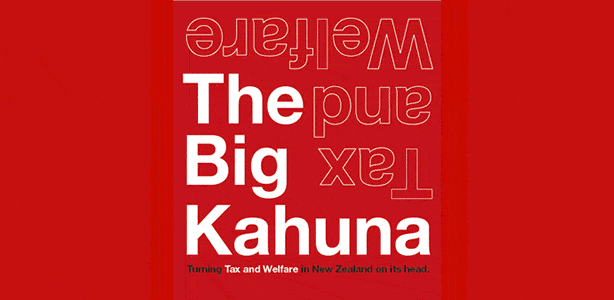In 2011 Gareth Morgan and Susan Guthrie published The Big Kahuna: Turning Tax and Welfare on its Head. “We reviewed New Zealand’s tax and welfare systems together, and found that both were broken and in need of complete overhaul,” says Morgan. “They have utterly failed to meet their original aims of promoting fairness, efficiency, individual responsibility and adequacy.”
The Big Kahuna proposed a radical rethink of the way we run tax and welfare – primarily by introducing an Unconditional Basic Income (UBI). This would be granted to all adult New Zealanders, regardless of their circumstances. The government would no longer make judgements on which people in which circumstances were deserving of support. And people would no longer lose their benefit if they changed circumstances, such as moving into work.
The main criticism of the UBI is that it is unaffordable. In the Big Kahuna, Morgan and Guthrie demonstrated the proposal could be funded through a flat tax and by closing tax loopholes around non-cash income from assets. In 2015 their calculations were updated and validated by NZIER.
“In short we have found that the numbers in the Big Kahuna stack up,” says NZIER economist John Stephenson. “Our model suggested a bigger impact on house prices than Morgan and Guthrie, but we also found their revenue forecasts were conservative.” NZIER also found that the Big Kahuna becomes a lot more affordable over time. The ageing population will mean many more people receiving National Superannuation, which is a form of UBI.
Tax levels would therefore depend on the level of UBI. Some examples are:
- A young adult UBI of $8,500, adult UBI of $11,000 and flat tax rate of 30%
- Including a child UBI of $3,000 and increasing the adult UBI to $12,000 would need a flat tax rate of 34.5%
“Our politicians should be debating tax and UBI levels, rather than tinkering with a broken system,” concludes Morgan.
For more information contact:
| Geoff Simmons
General Manager, Morgan Foundation 021 241 9251 |
John Stephenson
New Zealand Institute of Economic Research 021 994 017 |

